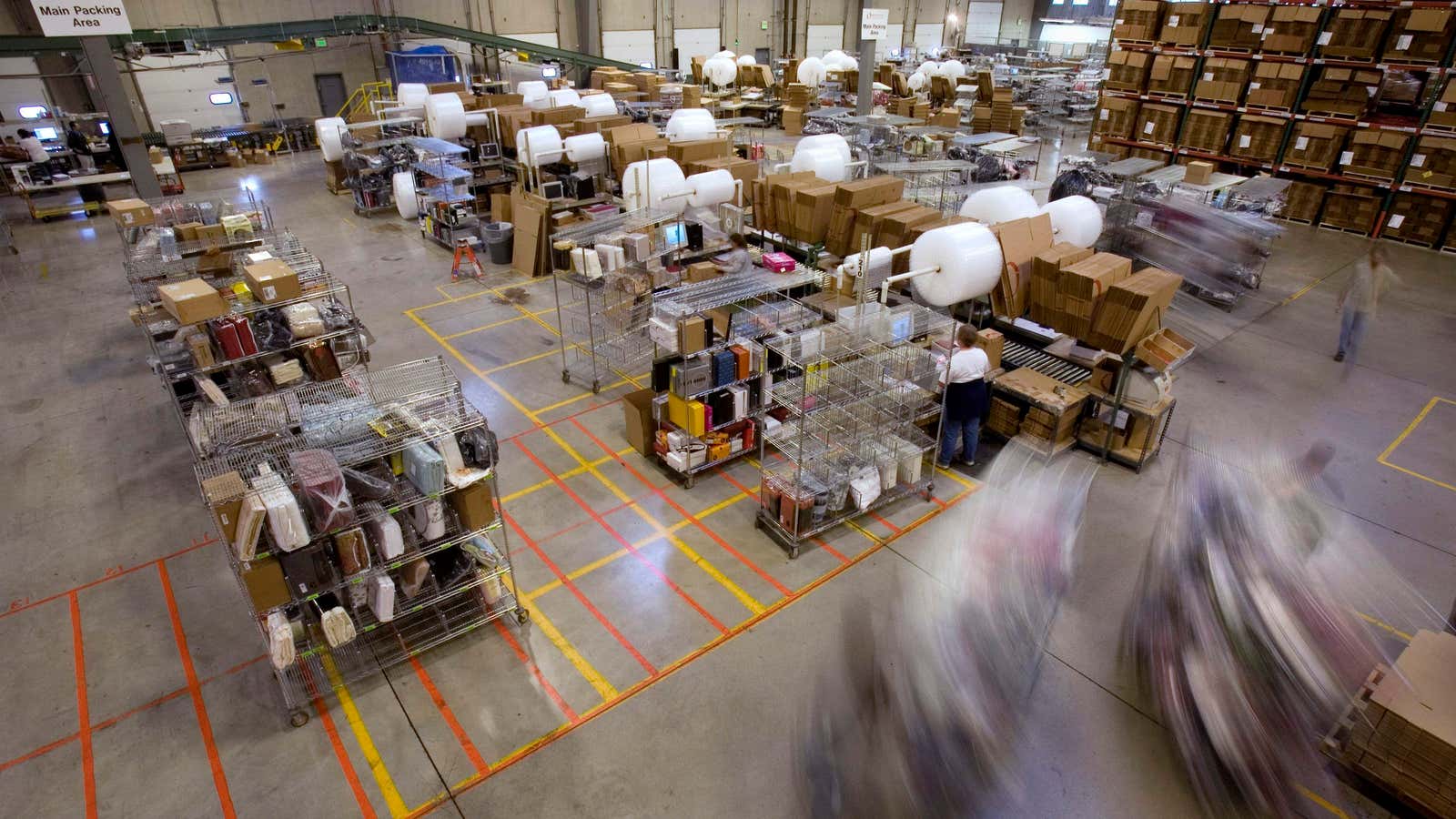The Republicans’ loss in the US presidential election last month has brought some of them to believe that they should take new steps to win the country’s fast-growing Hispanic population, many of which are first- or second-generation American immigrants. That includes making laws that better account for a population of some 11.1 million illegal immigrants.
But the immigration issues in the US go much deeper than an election. We spoke with Jonathan Johnson, the president of Overstock.com, a discount online shopping site, and a member of the Partnership for a New American Economy, a group of corporate executives that support immigration reform, about what current immigration policy has meant for his business.
Quartz: Where do you think progress is going to come from? What would you like to see politicians do first on immigration reform?
Jonathan Johnson: What I’d really like to see first is making it easier for those that have come here and studied in colleges and universities and have gotten degrees to be able to stay here, work for US businesses, start businesses, and help with job creation. At Overstock, we’re always looking for more software developers and computer scientists. We’re looking for more mathematicians and statisticians, and a lot of times we find great candidates who are here legally on student visas but when they finish their bachelor’s or master’s or PhD degrees have a very difficult time getting work visas. Rather than help build companies like ours, they are forced to go back to their home countries where not only are they not building our companies in the US, they’re creating enemies abroad.
QZ: Are you concerned that provisions for this group won’t be part of a larger immigration reform package to come out of Washington?
JJ: I’m hopeful that it will be part of it, but immigration is such a difficult subject to predict. My view is that allowing people to stay here to work, particularly in these job-creating jobs, is good for our economy and that is good for all Americans.
QZ: Prominent economists have pointed to Europe and criticized its aging populations, contrasting the desirability of US-bound immigration and predicting that young, new workers could help generate growth in the future. Among your peers, do you think people understand that?
JJ: I think a lot of people get that. I think people understand that historically we have been a nation of immigrants, and those that have the fortitude to leave their homeland and come [to the US] for a better life are those that are going to work hard, and make sure their kids get educated, and build things, build businesses. That’s the American Dream, and I think that applies to all who can get here. Opening the door so it’s easier for people to get here legally is important. I’ve never met a person who wants to be an illegal, whether it’s to break every law or be an illegal immigrant. Immigrants want to be here legally. We just make it so difficult for them to do that that it’s problematic.
QZ: What would you say to someone who’s concerned that immigrants are stealing American jobs?
JJ: I think that’s less often the case, and more often the case is that they’re helping create more American jobs. When Overstock.com started 12 years ago, we had 18 people sitting around a conference-room table. Thirteen years later we have over 1,300 people. Part of what fueled that growth is visa-holding, legal immigrants who can help build the system, do the work, that has allowed us to hire over a thousand American workers.
QZ: Any idea what percentage of your staff are immigrants or foreign-born Americans?
JJ: I would guess it’s more than 100 and less than 200 of about 1,300-1,400 people.
QZ: Silicon Valley and technology-based industries have been somewhat more vocal about this than other people. What has in your mind made people see the change?
JJ: Two things. I think it’s really hard to find good technologists, good mathematicians, good statisticians. A large percentage of the students studying those topics at universities are foreigners. To me it’s tragic that they come here because they can get a better education and then we won’t employ them! We send them home. These are entrepreneurial people by their very nature. They’ve left their country to come and study and learn a new language. These are real entrepreneurs and if we don’t let them stay here, they’re going to be entrepreneurs somewhere. They’re going to create jobs somewhere. It’s worse for America if those jobs are being created in other countries and creating competition that takes away American jobs.
QZ: Is this really a pressing concern, though?
JJ: I know that when you look at patents that are applied for and received by universities, a high percentage of those patents have at least one foreign-born inventor on them.
I think it’s a real threat. It may not be a threat that we’ll see tomorrow or next week, but job-creation takes time. We should be planting those seeds with policies that let us keep the best and the brightest here.
QZ: As an executive, what have your experiences been like in hiring foreign workers?
JJ: It is difficult and it is expensive. For those we’re able to hire that have visas, it’s a long and expensive process for them. The complexity and the length of it I think creates worry for their families. I don’t understand, other than that it’s a government function, why it’s so complex. If people are here and they’re employed and they’re adding to the economy, that seems like a good thing that our government should be encouraging.
We’ve had some employees that have had to leave, and we’ve lost them because the process was so long and the visa ran out and they couldn’t get a green card. It’s not like a months-long process; it’s a years-long process.
